When it comes to transporting goods such as vital chemicals, liquids and other materials, there is no doubt that this service is paramount for modern society to function.
It’s also no secret that the transport industry is a cause of pollution to the environment.
Nevertheless, huge steps are being made within the industry to tackle this issue.
In this article, we’ll take a look further into the effect this pollution has on the environment, how it can be reduced, and what Schenk UK is doing to help.
What Schenk UK Are Doing to Help Reduce Pollution?
We’re making huge strides to play our part in reducing the impact our company has on the environment. That is why we have pledged a commitment to adopt an ESG policy.

ESG stands for Environmental, Social, and Corporate Governance, and it refers to a set of criteria that investors and other stakeholders use to evaluate a company’s performance and impact in these three key areas.
Our ESG policy is based upon our ROAR strategy.
- Reduce.
- Optimise.
- Alternate.
- Replace.
Here is a look at some of the initiatives we’ve implemented throughout our business which help us to stay on track with our ESG commitment:
HVO Fuel
Embracing renewable alternatives like Hydrotreated Vegetable Oil (HVO) fuel for vehicles significantly reduces carbon emissions. This eco-friendly fuel seamlessly integrates with existing diesel engines, ensuring a cleaner energy source.
The majority of our fleet comprises Euro 6 engines, renowned for their significantly lower emissions compared to other diesel engines. This aspect greatly contributes to our sustainability efforts within the transport industry.
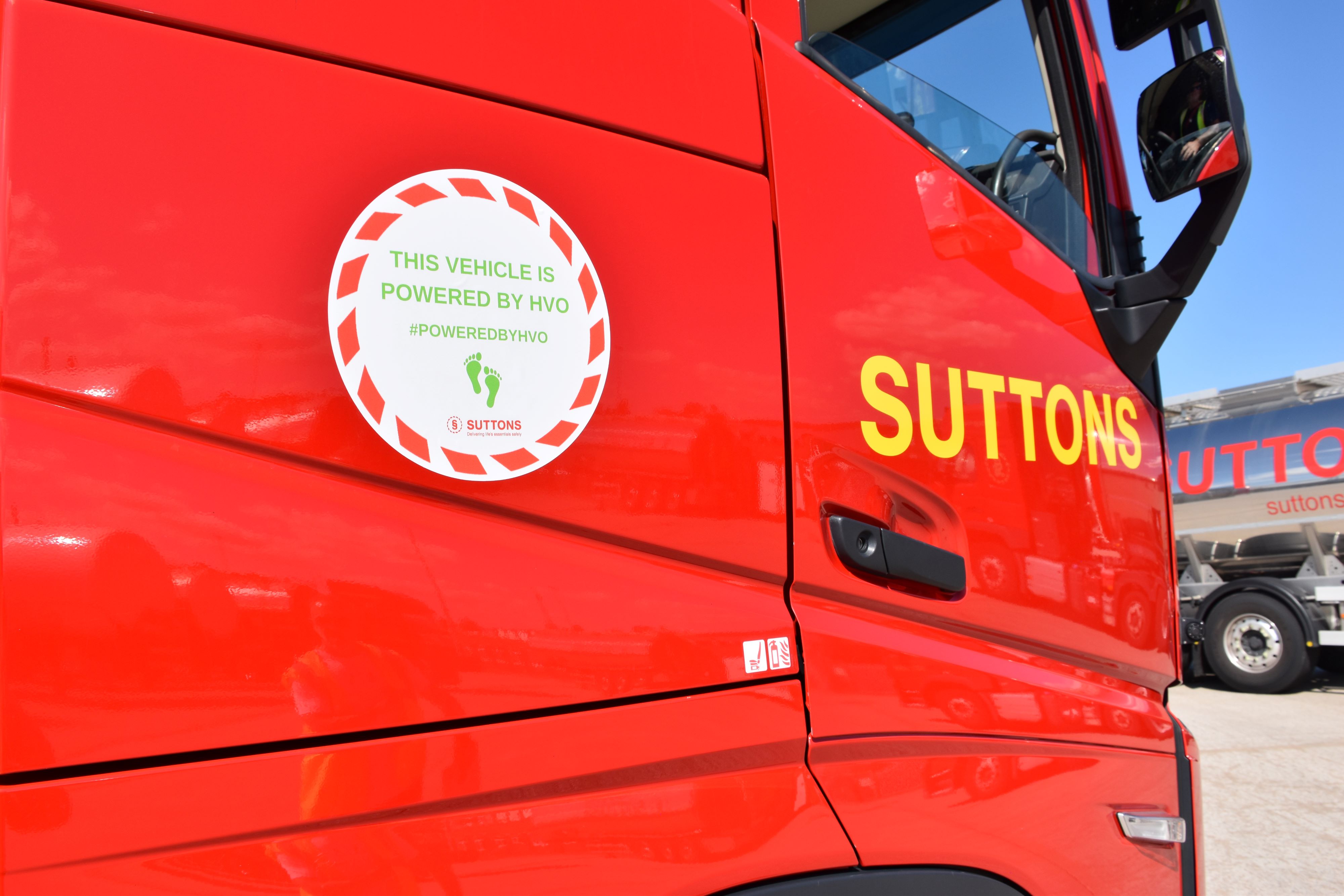

100% Renewable Energy
The electricity utilised at Schenk UK owned facilities exclusively comes from renewable sources.
Obtaining all our electricity from sustainable sources like wind, and solar power play a crucial role in lowering our scope 2 emissions.
Recognising our carbon footprint, we aimed to attain a complete reliance on renewable energy, and this dedication has allowed us to substantially diminish our carbon footprint.
Switch it Off Campaign
Our ‘Switch it Off’ initiative motivates our staff to collaboratively and consciously switch off unused lights, equipment, and machinery. Fostering a culture that prioritises energy conservation is of utmost importance to us.
Engaging our employees in this campaign not only results in cost savings on our energy bills but also contributes to reducing our overall energy consumption.
Thanks to this initiative, we are instilling responsible energy practices across our entire company.
Net Zero by 2040
We want to attain net-zero emissions by 2040. This entails a phased transition away from conventional fossil fuels, embracing cleaner alternatives like HVO, and utilising renewable electricity.
Prioritising these environmentally friendly options is aimed at significantly diminishing our dependence on traditional diesel fuel, marking significant progress toward this objective.
This strategic shift underscores our dedication to responsible and sustainable practices, contributing to positive changes in our environmental impact.
Allow us to support you in reaching your sustainability goals with our fleet of environmentally conscious tankers.
How does transportation affect the environment?
Key factors contributing to the high environmental impact of transportation include:
Greenhouse Gas Emissions
Diesel-powered vehicles emit CO2 and other greenhouse gases, exacerbating climate change and air pollution. Adoption of alternative fuels mitigates these emissions, aiding in pollution reduction efforts.
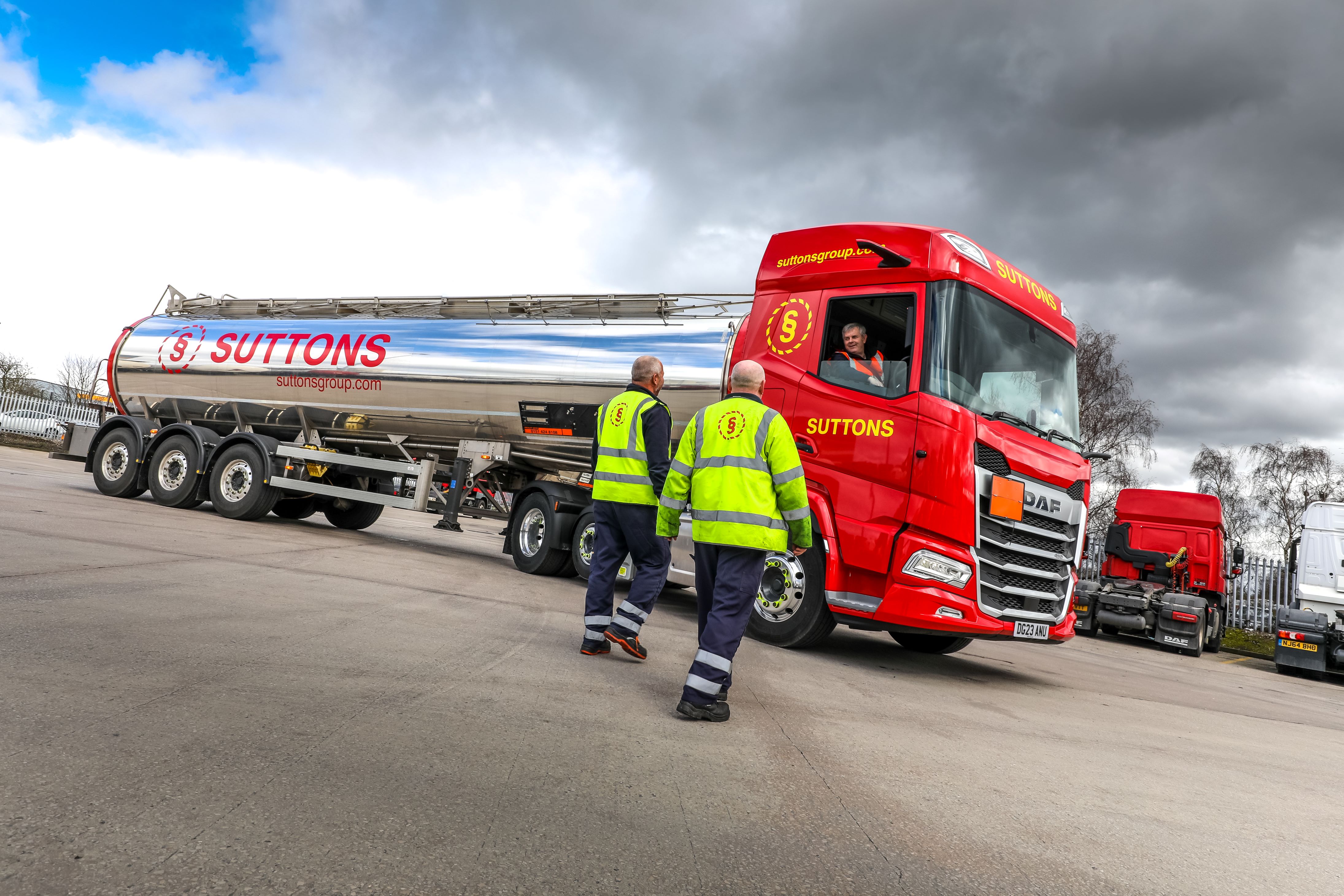
Air Pollution
Diesel engines in haulage vehicles emit nitrogen oxides which contribute to poor air quality.
These pollutants can have adverse effects on human health, causing respiratory issues and other health problems. Pollutants can harm plants, animals, and aquatic ecosystems.
Acid rain, a consequence of sulphur dioxide and nitrogen oxide emissions, damages soil, water bodies, and vegetation, disrupting the balance of ecosystems.
Certain air pollutants, like carbon dioxide and methane, contribute to global warming and climate change by trapping heat in the atmosphere.
This leads to rising temperatures, changing weather patterns, and the melting of glaciers and ice caps.
Some pollutants, particularly chlorofluorocarbons, contribute to the depletion of the ozone layer.
This allows more harmful ultraviolet radiation to reach the Earth’s surface, posing risks to human health and disrupting ecosystems.
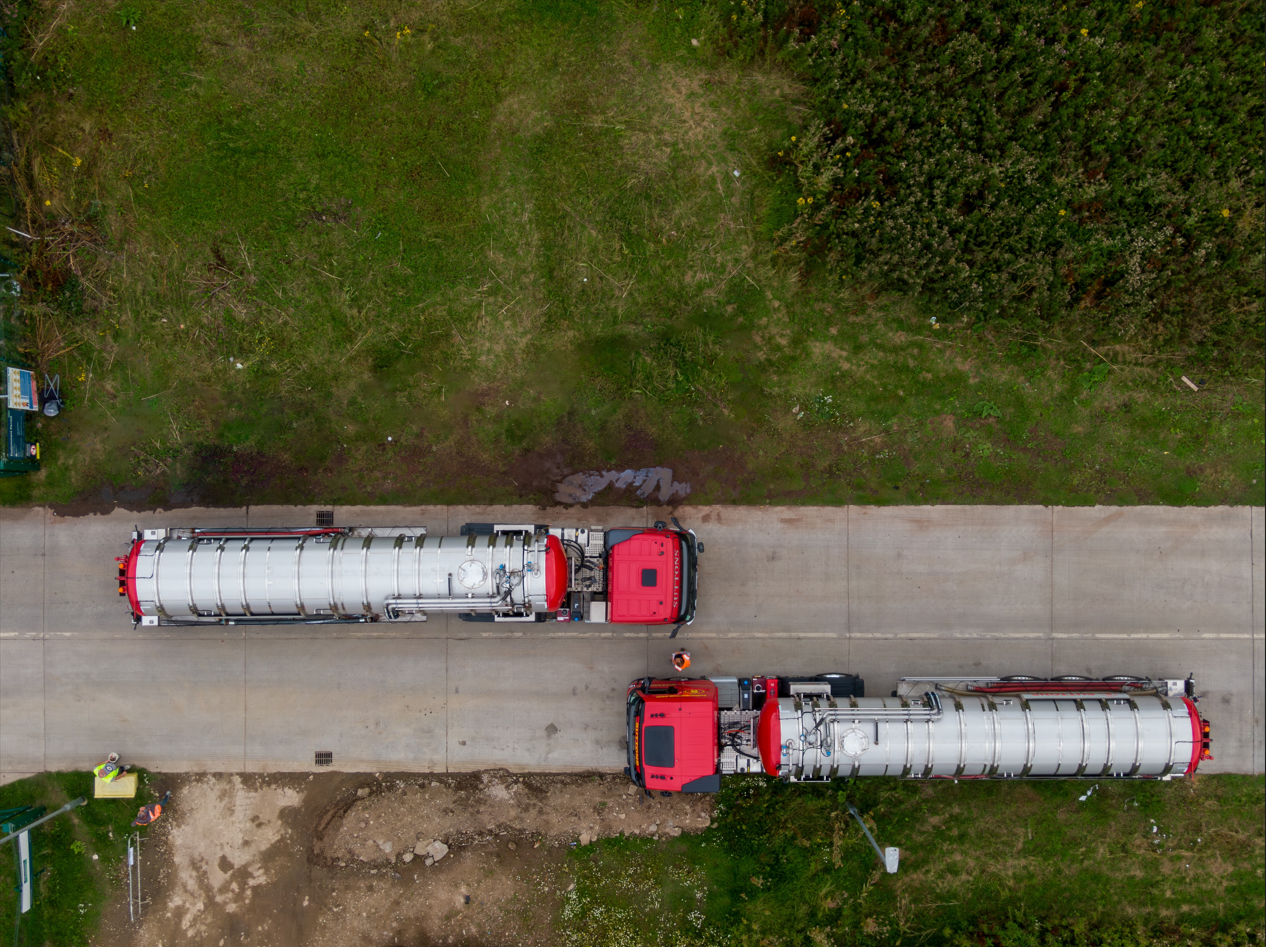
Infrastructure Impact
Haulage vehicles, especially heavy-duty ones, contribute to the wear and tear of roads and infrastructure. This requires ongoing maintenance and repair, further impacting the environment.
Trucks, especially large freight trucks and commercial vehicles carry heavy loads. The weight of these loads is distributed over multiple axles, but the concentrated force on individual axles can lead to higher pressure on the road surface.
This pressure accelerates pavement deterioration. The frequent stops and starts associated with urban deliveries or congested traffic can lead to additional stress on the road surface.
Acceleration and braking also contribute to pavement wear. The repeated passage of heavy trucks with large and often dual tyres can cause abrasive wear on the road surface.
This abrasion can lead to the loss of road materials and contribute to the formation of potholes and cracks.
Noise Pollution
Haulage vehicles generate noise pollution, particularly on motorways and in urban areas, affecting both human populations and wildlife.
Noise pollution from trucks can have various detrimental effects on both the natural environment and human well-being. Loud truck noise can disrupt natural habitats and interfere with the behaviour of wildlife.
Animals may alter their feeding, mating, and migration patterns in response to chronic noise, leading to changes in their populations and distribution.
Noise pollution contributes to habitat fragmentation, making it difficult for animals to move freely between different areas.
Chronic exposure to truck noise near residential areas can degrade the quality of life for nearby residents.
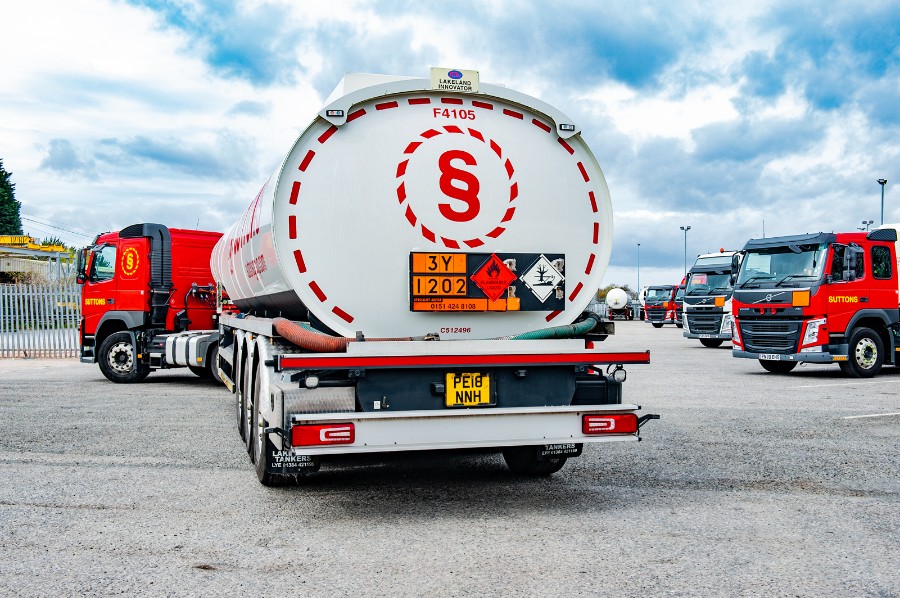
How to reduce transportation pollution
Reducing transportation pollution is crucial for mitigating the environmental impact of the transportation sector. Here are strategies and measures that can help minimise pollution from transportation:
- Transition to cleaner fuels – Encouraging the use of alternative fuels, such as biodiesel, compressed natural gas, or electrification in the haulage industry can reduce greenhouse gas emissions.
- Improved fuel efficiency – Advancements in engine technology and vehicle design can improve the fuel efficiency of haulage trucks, reducing both fuel consumption and emissions.
- Logistics optimisation – Implementing more efficient logistics and supply chain management practices can reduce the need for long-distance hauling, potentially favouring regional distribution centres and shorter transportation routes.
- Regulations and standards – Governments and industry bodies can implement and enforce stricter emissions standards, encouraging the adoption of cleaner technologies and practices within the transportation sector.
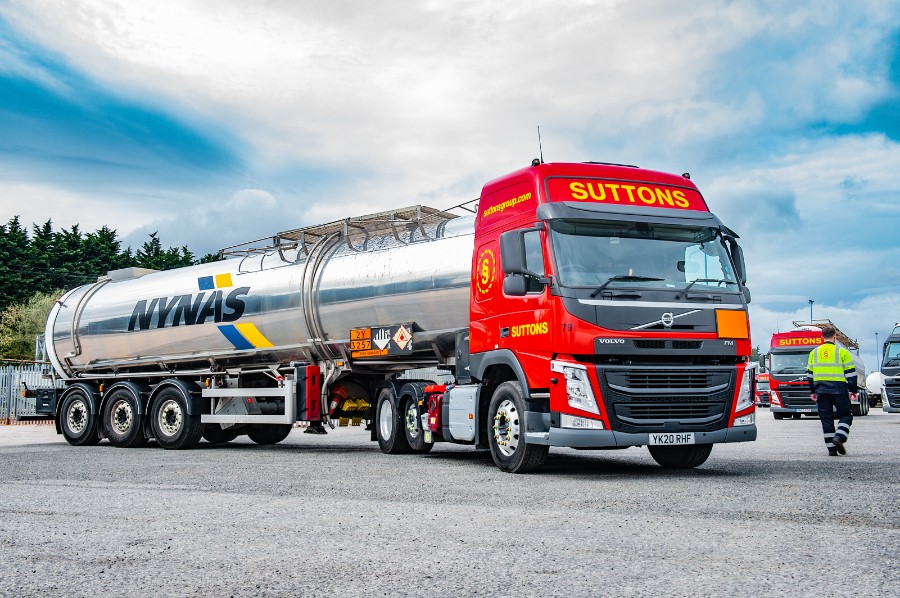
Your Sustainable Logistics Partner
With a business of our size and impact, we understand that an ESG policy will have a positive impact on our business and our carbon emissions output.